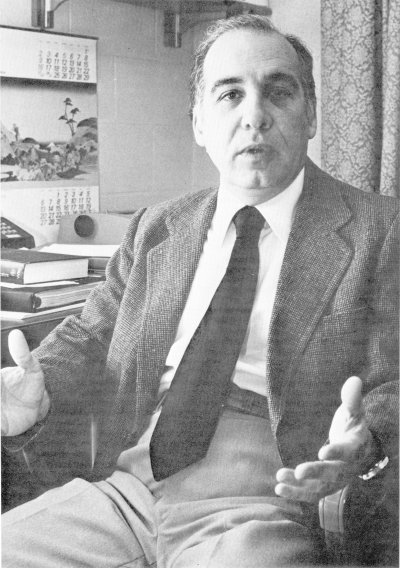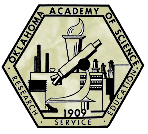{Page 96}
DR. HORACIO A. MOTTOLA
AWARD OF MERIT RECIPIENT FOR 1981

{Page 97}
At the annual meeting in 1981, Dr. Horacio A. Mottola received the Award of Merit of the Oklahoma Academy of Science in recognition for establishing at Oklahoma State University a nationally and internationally praised program in the broad area of analytical chemistry. Specific contributions include work in such areas as trace analysis, differential and catalytic kinetic methods of analysis, solvent extraction and chromatographic separation techniques, and automated, repetitive determinations in flow-through systems via series reactions and/or processes. His research program is considered by his colleagues to be one of the world's best in the area of applying kinetics in analytical chemistry.
Professor Mottola was born in Buenos Aires, Argentina and earned his undergraduate and graduate degrees at the University of Buenos Aires. He did some predoctoral research with Prof. Ernest B. Sandell at the University of Minnesota and postdoctoral research with Prof. Henry Freiser at the University of Arizona. He taught at the University of the Pacific (Stockton, California) in 1964-1966, and during that time decided to seek a position at a university with greater research opportunity. He returned to Prof. Freiser's laboratory for one year and then went to Oklahoma State University in the Fall of 1967 as an assistant professor. Mottola's promotion to associate professor came in 1971 and since 1975 he has been full professor in OSU's department of chemistry. Since 1968 his research work on "transient signals in chemical analysis" has received continuous support from the Chemical Analysis program of the National Science Foundation and at the present time totals nearly half a million dollars. With Sandell he devised a solvent extraction procedure that is now described in fundamental analytical chemistry textbooks using iodides for separation of metals, particularly bismuth in meteorites and other samples of geological interest. His work on solvent extraction continued in Freiser's laboratory with whom he pioneered the use of the theory of regular solutions and solubility parameters for the interpretation and prediction of distribution constants for the partition of metal chelates between aqueous-organic solvent pairs. Among Mottola's early accomplishments at Oklahoma State were development of kinetic methods for determining organic species in which the end point of a titrimetric procedure is detected by a catalyzed reaction. The automation of this approach and the chemistry derived from its application have earned Mottola and Oklahoma State University a place in "A History of Analytical Chemistry" published in 1977 by the Division of Analytical Chemistry of the American Chemical Society. Mottola's interest in the role that kinetics play in analytical procedures took him into the area of continuous-flow sample processing systems, resulting in pioneering work exploiting non-segmented, closed-loop versions of continuous-flow analysis. It is now self-evident that this is a sensible way of performing chemical analysis on a micro scale, but at the time, to suggest that air segmentation was superfluous was to commit heresy. He has independently pressed on with his variation of nonsegmented continuous-flow and has played a key role in promoting the growth of the so-called "Flow Injection Analysis" and associated approaches in the USA by organizing and presiding over international symposia within the ambit of the American Chemical Society [Miami, 1978 and New York, 1981]. For the last decade at OSU, Mottola has been much in demand as a speaker and as author of authoritative reviews. His most recent engagements are the presentation of a plenary lecture at the international symposium on Flow Analysis by invitation of the Swedish Academy of Sciences [Lund, Sweden, June 1982] and another such lecture on electrochemical detection in flow analysis by invitation of the Hungarian Academy of Sciences [Mátrafüred, Hungary, October 1982].


